Address
304 North Cardinal St.
Dorchester Center, MA 02124
Work Hours
Monday to Friday: 7AM - 7PM
Weekend: 10AM - 5PM

Why do we need Business Expressions for Meetings? When talking to colleagues, sometimes we need to let them know that something will be resolved soon. How do we express this? “ASAP” stands for “As Soon as Possible.” It’s commonly used in business to ask for a quick response or action, like signing a contract or replying to an email.
If an issue can’t be solved immediately, perhaps you need to check facts or consult a supplier. No worries! Here are some helpful phrases to inform your co-worker that you are looking into it.
What does “I will look into it” mean? It means you’ll investigate or find information about something. For example, “I’ll look into the reasons for the decision.”
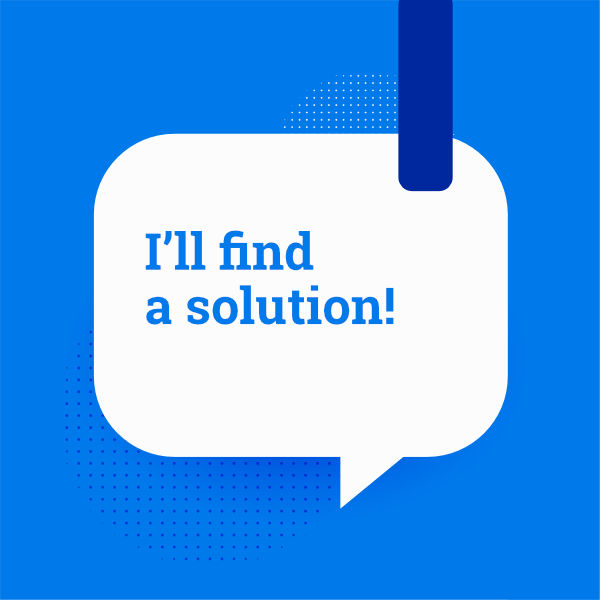
This is great to use when you aren’t sure about something but have a vague idea of where you can learn more.
Also, “solution” works best when there’s a problem.
It’s a fairly uncertain phrase, use it when you’re unsure if you can think of something for yourself. You may be able to ask around about it, but you can’t guarantee an answer.
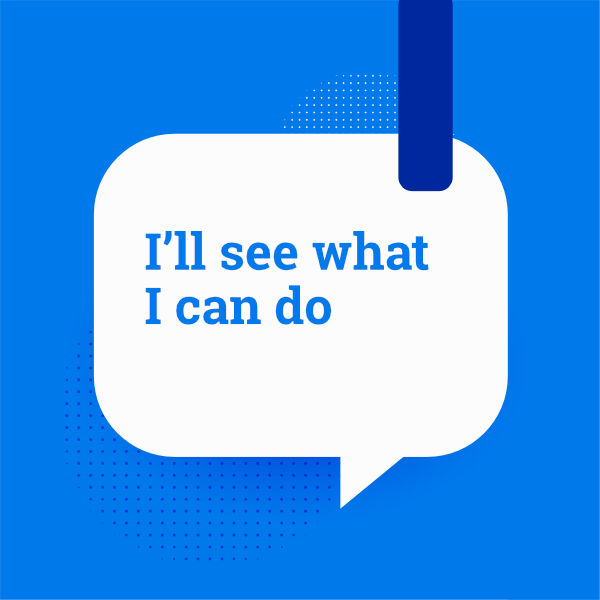

It implies that you’ll “get right on” something, meaning you will do what you can to find the answer quickly.
This will give the person you’re speaking to more confidence that you know what you’re doing.
“I’ll let you know” suggests you’ll provide someone with more information when you have more to share with them.
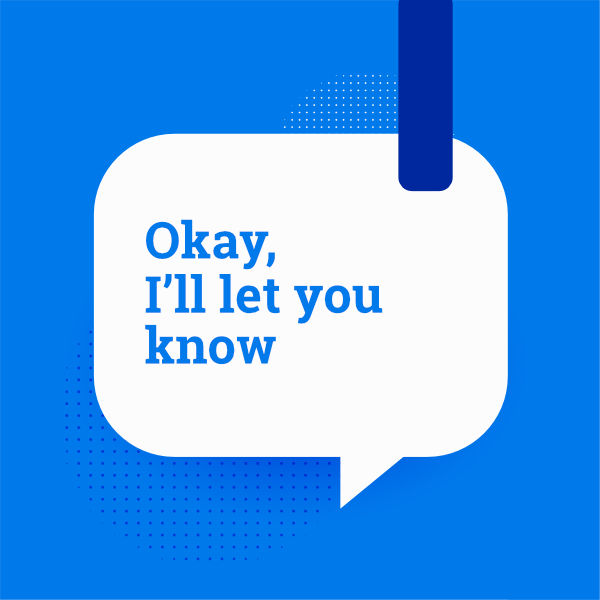
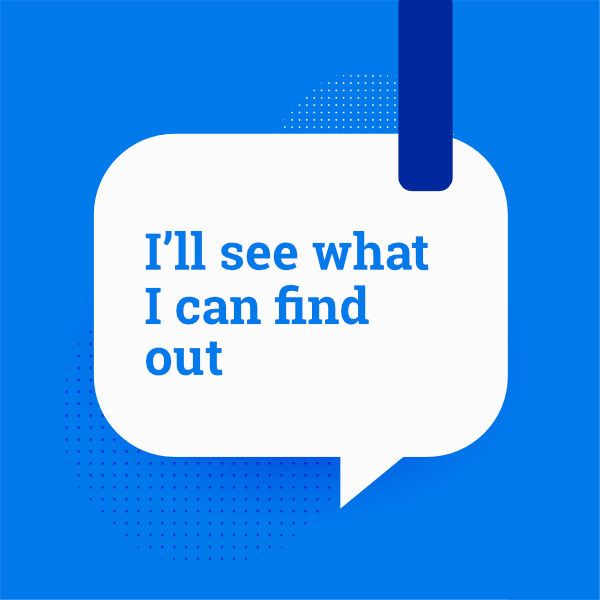
“I’ll see what I can find out” shows you’re looking for answers and will let someone know if you “find” something.
“Find” is used to show that you’re searching for a solution by asking around or looking through documents.
“I’ll find a way” suggests you’ll do whatever you can to help someone out.
It is a confident phrase that implies you know there is a solution to a problem. “Find a way” shows that you’ll do whatever it takes to solve something.
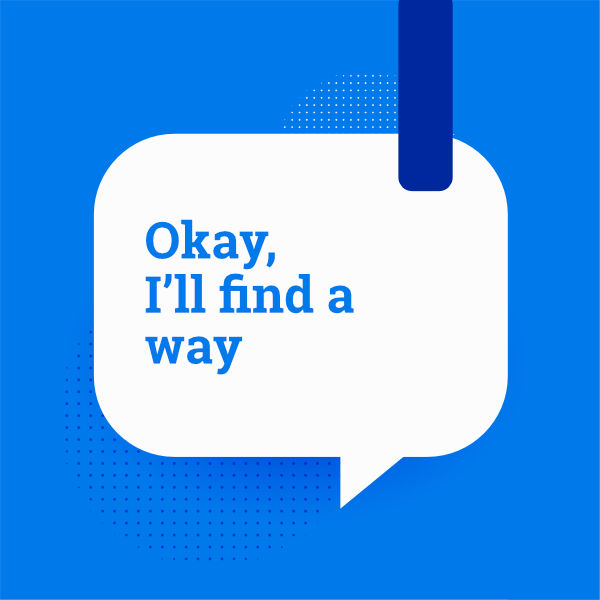

You may use this when finding the answer by doing your own research or asking around.
“Leave it with me” shows a proactive attitude, which is great in formal contexts because it shows you can solve problems effectively.
“I’ll have to ask around” shows that you don’t know the answer but might know someone who does.
For example, if you’re in a company, you might know that someone from the IT team could help you with a tech problem.
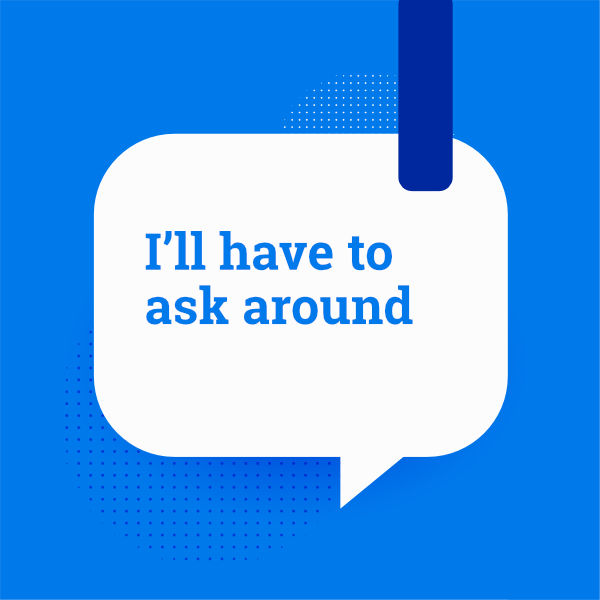
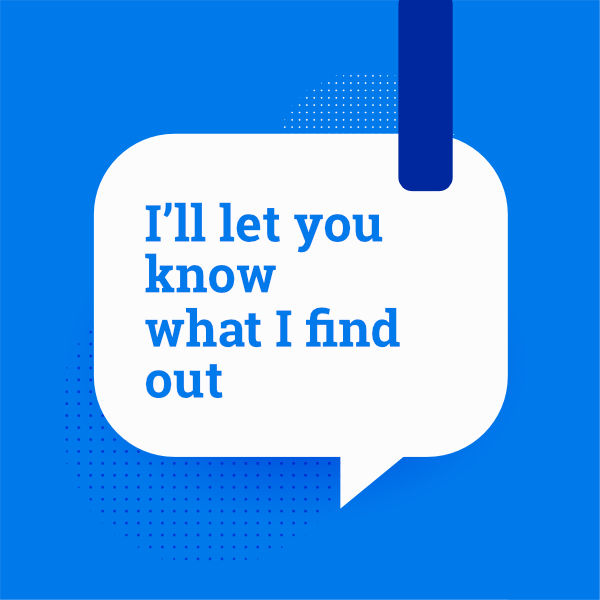
“I’ll let you know what I find out” suggests you’re actively looking for answers.
“Find out” is used here to show someone that you’re trying to figure out the best way to answer their query.
“I’ll get back to you” shows that you’re looking for an answer and will respond once you have one.
It’s great to show how to say “I will look into it” professionally because of how common it is to use this in business English.

Example: I’ll get right on that!
We need the cash flow forecast for June to August!
I’ll get right on that!
Podemos compreender a linguagem de maneira mais eficaz ao utilizar algo chamado “CHUNKS”. Esses CHUNKS (blocos) funcionam como peças de “LEGO”, formados por frases que já conhecemos bem.
Ao ouvirmos ou lermos, esses blocos nos auxiliam a antecipar o que virá a seguir, tornando a compreensão em tempo real mais fácil, como um código secreto que simplifica o processamento da linguagem.

Imagem de starline no Freepik + Capa no Freepik